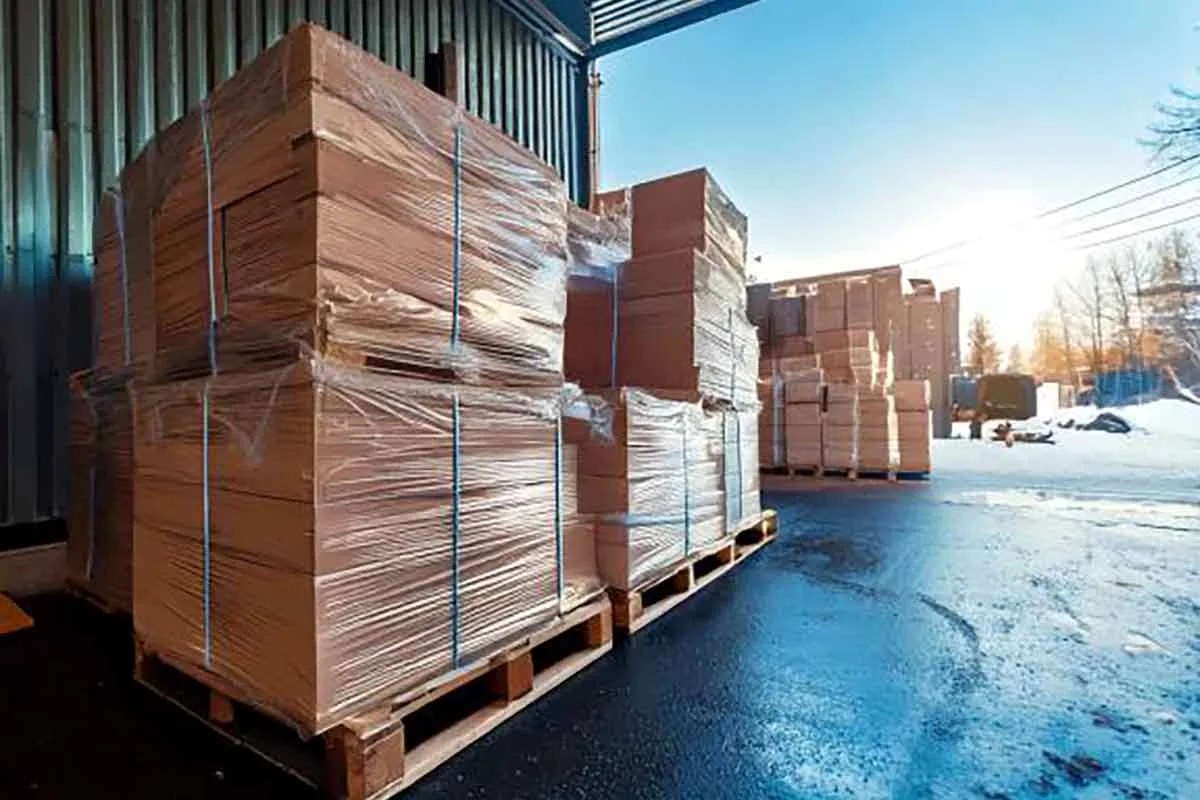
As we prepare for colder weather, it’s crucial to take extra precautions when shipping temperature-sensitive products. One key service to consider during the winter months is the Shipping Service Protect from Freeze (PFF) service, especially in the Less-than-Truckload (LTL) network. This service helps prevent goods from freezing during transit, ensuring that your freight arrives in optimal condition.
Why Freeze Protection Shipping Matters
Certain types of freight are particularly vulnerable to freezing temperatures. Without proper freeze protection, these products could become unusable or unsafe. Common examples include:
Liquids or Water-Based Material
Beverages, chemicals, and paints can solidify or expand when frozen, potentially damaging the packaging or altering the product.
Pharmaceuticals and Cosmetics
Exposure to freezing temperatures can reduce the effectiveness or alter the consistency of these products.
Food Products
Items such as dairy, juices, and sauces can spoil or lose quality if frozen.
The general rule of thumb is that if your product can be altered by freezing, packaging alone is not enough to protect it. Utilizing special services, carriers, and care is the best way to protect your product from freezing and damaging.
How Freight Freeze Protection Works
Different LTL carriers offer varying levels of freeze protection shipping services. Below are some of the common methods used to protect freight from freezing:
- Keep It Moving: The goal is to minimize the time freight spends idel on docks or trucks. Stationary goods are more susceptible to freezing.
- Blanket Wraps: Some carriers wrap pallets with insulated blankets to help maintain a higher internal temperature.
- Heated Trailers: While not widespread in the LTL world, some carriers utilize heated trailers for added freeze protection. The units here would be reefers with the temperature controlled in heating condition.
- Heated Warehouses: This is rare since most LTL dock are open-air and not temperature-controlled, but some specialized facilities offer heated storage.
4-3-2-1 Rule: Understanding the Rule for Protect from Freeze LTL Shipments
Most carriers do not offer Protect from Freeze (PFF) services over weekends. Adhering to this rule helps shippers to plan accordingly to ensure PFF services are being used at all times during transit.
The rule is to take into consideration the transit time for your shipment to when you should ship out the product. The 4-3-2-1 rule is as follows:
| Transit Days | Must Arrive by Day | Must Ship Out Day |
|---|---|---|
| 4 | Friday | Monday |
| 3 | Friday | Tuesday |
| 2 | Friday | Wednesday |
| 1 | Friday | Thursday |
For example, let’s say you are shipping product from Allentown, PA to Chicago, IL with a 2 day transit. The product must be shipped out by Wednesday to arrive by Friday.
If your transit time exceeds four days (or you are past a must ship date), you do have some alternative options. You may explore contacting carriers to see if they have weekend PFF service available or send the shipment via an expedite or dedicated truckload carrier. While these alternative options may prove more expensive, it may be necessary to ensure your freight arrives on time and not damaged.
Embargoes: How They Affect Shipping Service Protect from Freeze
During extreme cold spells, carriers may issue embargoes, meaning they will not accept the Shipping Service Protect from Freeze (PFF) freight for specific regions. These embargoes protect freight from exposure to unsafe conditions in severely affected areas. To avoid disruptions, always check with carriers before scheduling PFF shipments and monitor carrier websites or contact their customer service team for updates.
Routing freight with TLI makes this step easy. Our team is routing freight every day and do these steps for you. Rest assured, we do the work while you receive the Bill of Lading once it’s ready.
Key Tips for Using Shipping Service Protect from Freeze LTL Services
- Cost: Protect from freeze service typically incurs additional costs, which vary by carrier. Ensure that the service is selected during scheduling to avoid unexpected fees.
- BOL Verbiage: Clearly indicate “Protect from Freeze” on the Bill of Lading (BOL). When properly selected, this verbiage will print on the BOL automatically.
- Communication: Collaborate with vendors and customers to ensure shipments adhere to the 4-3-2-1 rule. If necessary, suggest rescheduling the shipment or exploring expedite options.
Conclusion
When shipping temperature-sensitive freight during winter, a well-executed freeze protection shipping strategy can prevent costly damages and ensure customer satisfaction. By understanding carrier-specific PFF services, adhering to the 4-3-2-1 rule, and proactively communicating with partners, you can safeguard your freight from freezing conditions. For the best results, always check carrier guidelines and plan ahead to avoid potential delays or disruptions.
At Translogistics, Inc. (TLI), we understand the critical importance of protecting temperature-sensitive freight during transit. Our team of experts works closely with a network of reliable LTL carriers to offer tailored Shipping Service Protect from Freeze solutions. Whether you need help navigating carrier embargoes, finding expedited options, or ensuring proper BOL documentation, TLI is here to provide seamless support. Trust us to keep your products safe from freezing and your supply chain running smoothly, even in the harshest winter conditions.
